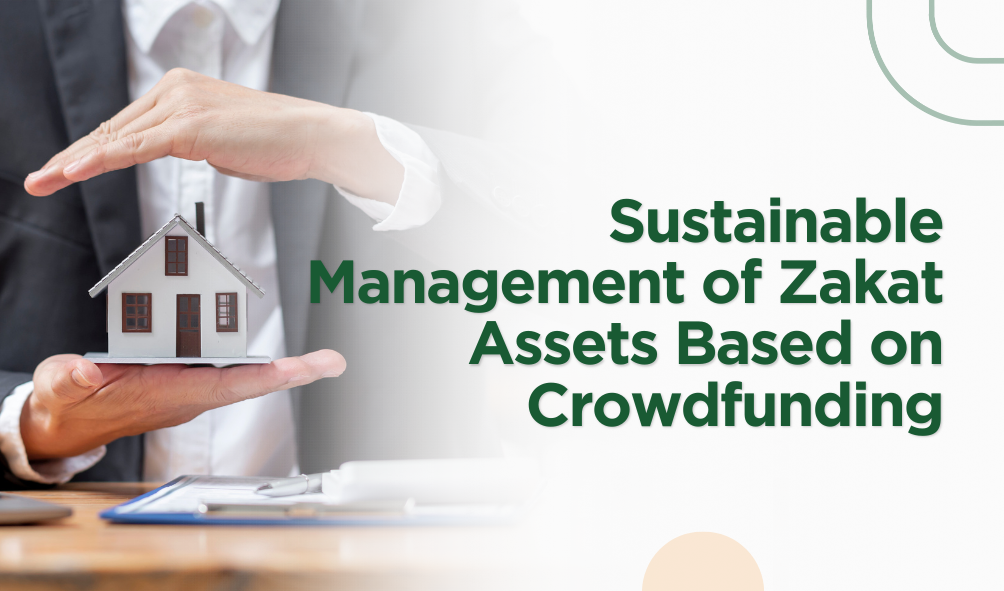Sustainable Management of Zakat Assets Based on Crowdfunding
Introduction
Zakat, a fundamental pillar of Islam, plays a crucial role in promoting social welfare and alleviating poverty. In Indonesia, the potential of zakat is enormous, but its management often faces challenges related to efficiency and transparency. With the advent of digital technology, crowdfunding has emerged as an innovative solution to optimize zakat management. Crowdfunding allows for broader and more transparent fundraising, involving direct community participation.
Potential and Benefits of Crowdfunding in Zakat Management
Crowdfunding has opened up new opportunities in zakat management, particularly in terms of community participation and transparency. Platforms like Kitabisa.com and WeCare.id have demonstrated how technology can be used to raise zakat funds from various segments of society, including those who may not have previously engaged in philanthropic activities. Crowdfunding enables small donations from a large number of people, leading to significant cumulative funds.
Moreover, crowdfunding facilitates more transparent and accountable zakat management. Every donation can be tracked by the public, and the use of funds can be reported openly through the same platform. This increases public trust in zakat institutions, which in turn can boost the amount of donations.
Challenges in Crowdfunding-Based Zakat Management
Despite its many benefits, crowdfunding-based zakat management also faces several challenges. One of the biggest challenges is ensuring that public trust is maintained. In a digital environment, the risk of fraud and misuse of funds is always present. Therefore, zakat institutions need to adopt technologies that enhance transparency, such as blockchain, which allows every transaction to be recorded and audited openly.
Another challenge is ensuring that the funds raised through crowdfunding are properly distributed to the rightful recipients (mustahik) and used for the intended purposes. Mismanagement of funds can damage the reputation of zakat institutions and reduce public trust. Therefore, zakat institutions must have strict oversight mechanisms and involve independent audits to ensure funds are used effectively.
Also Read:Corporate Zakat According to AAOIFI
Strategies for Sustainable Zakat Management
Achieving sustainable zakat management requires a comprehensive strategy. First, zakat institutions must continue to improve digital literacy and public awareness about the importance of zakat and how to give zakat through crowdfunding platforms. Ongoing educational campaigns can help increase community participation.
Second, zakat institutions must develop programs that focus on empowering mustahik. Zakat should be distributed not only to meet basic needs but also to enhance the economic capacity of recipients, for example, through skills training or business capital. This way, mustahik can become self-reliant and no longer dependent on zakat assistance.
Conclusion
Crowdfunding-based zakat management offers an innovative and effective approach to optimizing the collection and utilization of zakat funds. By leveraging digital technology, zakat can be managed more transparently, efficiently, and accountably. However, to achieve sustainability, zakat institutions must address existing challenges with appropriate strategies and remain committed to maintaining public trust. Through effective management, zakat can play a larger role in creating social and economic welfare in society.
Also Read:Understanding Corporate Zakat: Insights from the MUI Fatwa Commission

References
- Febriandika, N. R., Kusuma, D., & Yayuli, Y. (2023). Zakat compliance behavior in formal zakat institutions: An integration model of religiosity, trust, credibility, and accountability. International Journal of Advanced and Applied Sciences, 10, 187–194. https://doi.org/10.21833/ijaas.2023.06.022
- Herianingrum, S., Supriani, I., Sukmana, R., Effendie, E., Widiastuti, T., Fauzi, Q., & Shofawati, A. (2023). Zakat as an instrument of poverty reduction in Indonesia. Journal of Islamic Accounting and Business Research.
- Muhammad, S., Darmawati, D., Hadiningdyah, D. I., & Hadromi, Y. (2023). Effect of Zakat Potential Management on Achieving SDGs: Case of the Indonesian National Amil Zakat Agency. International Journal of Islamic Economics and Finance Studies, 9(1), 160–188.







